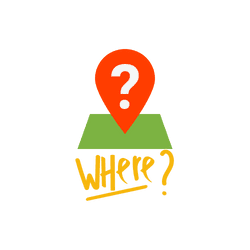You can borrow from several different sources, and it pays to shop around because interest rates and fees vary from lender to lender. Get quotes from at least three different lenders, so you know where to get a loan for the best interests and go with the offer that serves you best. You may want to check out:
- Banks: The local bank often comes to mind first, and they might be a great option, but other types of lenders are definitely worth a look. Banks include big household names and community banks with a local focus.
- Credit unions: These are similar to banks, but they are owned by customers instead of investors.10 The products and services are often virtually the same, and rates are and fees are often better at credit unions (but not always). Credit unions also tend to be smaller than banks, so it may be easier to get a loan officer to personally review your loan application. A personal approach may improve your chances of getting approved.
- Online lenders: You’ll find a variety of lenders online. Individuals with extra cash might provide money through peer-to-peer lenders, and non-bank lenders (like large investment funds) also supply funding for loans. These lenders are often competitive, and they might approve your loan based on criteria other than those used by most banks and credit unions.
- Finance companies: Finance companies make loans for everything from mattresses to clothing and electronics. These lenders are often behind store credit cards and “no interest” promotional offers.
- Auto dealers: You don’t need to visit a bank for a car loan as many dealers allow you to borrow and buy at the same place. Dealers typically partner with banks, credit unions, or other lenders. Some dealers, especially those selling inexpensive used cars, handle their own financing.
- Mortgage brokers: A mortgage broker arranges home loans and may be able to shop among numerous competitors. Ask your real estate agent for suggestions.
- The federal government: The federal government funds some student loans, and those loan programs might not require credit scores or income to get approved. Private loans are also available from banks and others, but you’ll need to qualify with private lenders.
Costs and Risks of Loans
It’s easy to understand the benefits of a loan. You get the money you need to buy something, and you can pay it over time. To get the full picture, keep the drawbacks of borrowing in mind as you decide how much to borrow (or whether to borrow money at all).
Ongoing Payments
It’s probably no surprise that you’ll need to repay the loan, but it’s challenging to understand what repayment will look like, especially if payments won’t start for several years (as with some student loans). It’s tempting to assume you’ll figure it out when the time comes. It’s never fun to make loan payments, especially when they take up a large part of your monthly income. Even if you borrow wisely with affordable payments, things can change. A job cut or a change in family expenses can leave you regretting the day you got a loan.
Interests Costs
When you repay a loan, you repay everything you borrowed—and you pay extra. Interest can be baked into your monthly payment, or it can be a line item on your credit card bill. Either way, interest raises the cost of everything you buy on credit. If you calculate how your loans work, you’ll find out exactly how much interest matters.
Impact on Your Credit
Your credit scores rely on your borrowing history, but there can be too much of a good thing. If you use loans conservatively, you can (and probably will) still have excellent credit scores. If you borrow too much, your credit will eventually suffer. Plus, you increase the risk of defaulting on loans, which will really drag down your scores.
Lack of Flexibility
Money buys options, and getting a loan might open doors for you. At the same time, once you borrow, you’re stuck with a loan that needs to be paid off. Those payments can trap you in a situation or lifestyle that you’d rather get out of, but change isn’t an option until you pay off the debt. For example, if you want to move to a new city or stop working so you can devote time to family or a business, it’s easier when you’re debt-free.


Hello there! I just wish to offer you a huge thumbs up for your great info you have got here on this post. I will be returning to your website for more soon.
Nice post. I learn something new and challenging on sites I stumbleupon everyday. It will always be exciting to read through articles from other writers and use a little something from their sites.